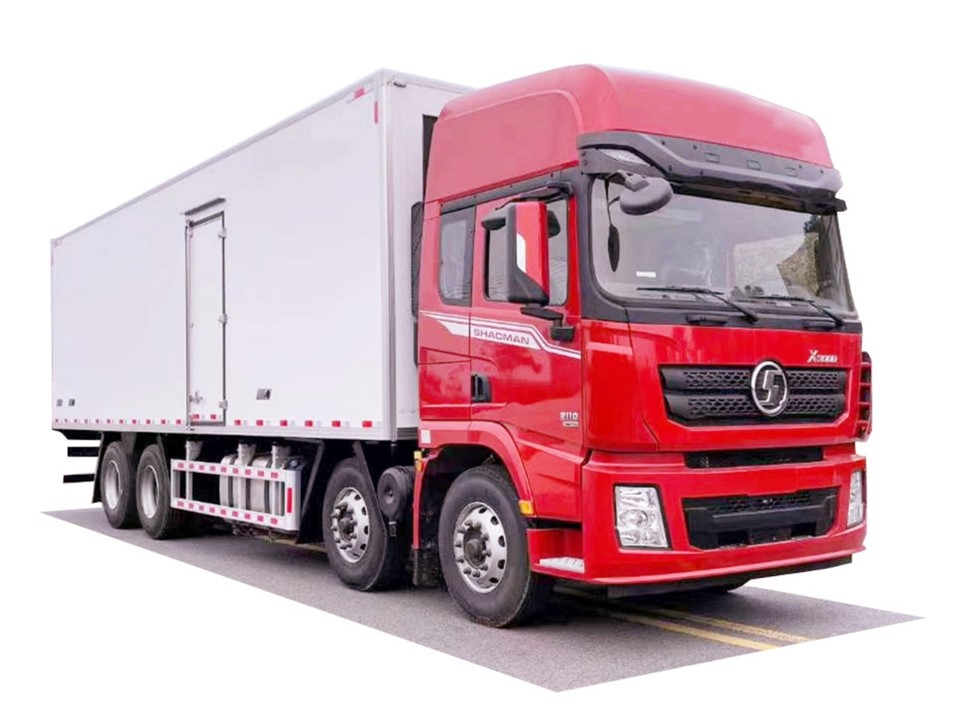Dump trucks play an essential role in construction and heavy-duty jobs, with the Gross Vehicle Weight (GVW) greatly influencing their capability and functionality. In this article, we will explore everything you need to know about GVW dump trucks, from their specifications and uses to practical considerations for purchasing and operating them.
What is a GVW Dump Truck?
A GVW dump truck, or Gross Vehicle Weight dump truck, refers to the total weight a vehicle can safely carry, including its own weight plus cargo. Understanding the GVW is crucial for selecting a truck that suits your operational needs. The GVW capacity can vary significantly, usually ranging from 10,000 pounds for lighter models to over 80,000 pounds for larger commercial trucks.
Importance of GVW in Dump Trucks
The GVW of a dump truck determines factors such as:
- Loading capacity
- Handling and maneuverability
- Fuel efficiency
- Legal weight restrictions
Types of GVW Dump Trucks
There are various types of GVW dump trucks on the market, each catering to different needs and applications. Below are some of the most common types.
1. Light-Duty Dump Trucks
Light-duty dump trucks usually have a GVW of up to 12,500 pounds. They are ideal for small jobs, landscaping, and transporting light materials.
2. Medium-Duty Dump Trucks
Medium-duty trucks typically carry a GVW of between 12,500 to 26,000 pounds. These trucks offer a balance between power and payload and are suitable for mid-sized construction projects.
3. Heavy-Duty Dump Trucks
Heavy-duty dump trucks have a GVW above 26,000 pounds, often exceeding 80,000 pounds. They are built for large-scale projects and can handle heavy loads of dirt, gravel, and other materials.
Choosing the Right GVW Dump Truck
Selecting the right dump truck requires careful consideration of several factors.
1. Understand Your Payload Requirements
Determine the average weight of the materials you will be transporting. This way, you can select a dump truck with an appropriate GVW rating.
2. Consider Your Usage Environment
Evaluate the terrain and environment where you’ll be operating the truck. A truck designed for smooth highways may not perform well in off-road settings.
3. Review Local Regulations
Different regions have varied guidelines regarding weight limits and type classifications for dump trucks. Ensure that your vehicle complies with local laws.
4. Fuel Efficiency
Examine fuel consumption ratings for each model. Choosing a model with better fuel efficiency can significantly impact operational costs over time.
Table: Comparison of GVW Dump Truck Types
| Truck Type | GVW Range | Common Uses |
|---|---|---|
| Light-Duty | Up to 12,500 lbs | Landscaping, small construction |
| Medium-Duty | 12,500 to 26,000 lbs | Mid-sized construction, waste removal |
| Heavy-Duty | Above 26,000 lbs | Large-scale construction, mining |
Applications of GVW Dump Trucks
Dump trucks have various applications across multiple industries. Here are some common uses:
1. Construction
Dump trucks are indispensable in the construction industry, transporting materials such as sand, gravel, soil, and demolition debris.
2. Mining
In mining operations, heavy-duty dump trucks are needed to haul large tonnages of ore and waste material.
3. Landscaping
Smaller dump trucks are commonly used in landscaping projects for delivering soil, mulch, and other materials.
4. Waste Management
Dump trucks are often used for collecting and transporting waste materials to disposal sites.
Practical Tips for Operating and Maintaining GVW Dump Trucks
1. Regular Maintenance Checks
Ensure that routine maintenance checks, including oil changes, brake inspections, and tire checks, are performed to prolong the life of your dump truck.
2. Operator Training
Invest in proper training for operators; they should understand truck operations, load distribution, and safety practices to prevent accidents.
3. Load Management
Always adhere to the truck’s maximum payload capacity. Overloading can lead to mechanical failures and safety hazards.
4. Safe Driving Practices
Instruct drivers to maintain safe speeds, particularly on uneven terrain. Also, emphasize the importance of secure loading to minimize shifting during transport.
Environmental Impact of Dump Trucks
1. Emissions Standards
Many regions have established emissions standards for commercial vehicles, including dump trucks. Utilizing trucks that meet or exceed these standards helps in reducing environmental impact.
2. Alternative Fuels
Explore options like biodiesel or electric dump trucks, as these have a lower carbon footprint compared to traditional diesel trucks.
3. Eco-friendly Materials
When possible, use recycled materials and eco-friendly practices in construction projects to minimize environmental damage.
Frequently Asked Questions (FAQs)
1. What is the GVW limit for dump trucks?
The GVW limit for dump trucks can vary widely, but typically, it ranges from 15,000 pounds for light-duty models to over 80,000 pounds for heavy-duty trucks under specific regulations.
2. How do I determine the right GVW for my dump truck?
You can determine the right GVW by evaluating the types of materials you plan to transport, the typical job requirements, and any applicable local regulations.
3. What are the maintenance costs associated with GVW dump trucks?
Maintenance costs can vary depending on the truck’s age and usage, but regular checks, oil changes, tire replacements, and unexpected repairs should be factored into your budget.
4. Are there weight restrictions for dump trucks on highways?
Yes, most highways have specific weight restrictions for commercial vehicles. It’s essential to check local guidelines to ensure compliance.
5. How can I extend the lifespan of a dump truck?
Regular maintenance, proper loading practices, and safe driving habits can significantly enhance the lifespan of a dump truck.
6. What safety features should I look for in a GVW dump truck?
Look for safety features such as anti-lock brakes, backup cameras, and load monitoring systems to ensure safety during operation.





